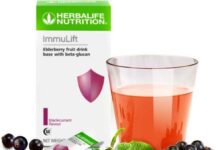
The way we look, feel and perform every day are all related to our diet. This is exactly why Malaysians should start thinking of their health and wellness more holistically. Most of us want to improve these aspects of our lives and are recognising the role that good nutrition plays. As we move forward in 2023, here are some nutrition trends to take note of.
Plant-based eating: Addressing both sustainability and food waste
Whether the diet you choose is vegan, vegetarian, or a flexitarian—plant-based eating isn’t going out of style any time soon. Plant-based diets are nothing new, but more and more products are becoming mainstream to appeal to those who recognise the benefits not only for the body but for the health of the planet. Plant foods are nutrient-dense, which means that they provide an abundance of nutrients relative to their calorie cost. Fruits, vegetables, beans, and whole grains are terrific sources of vitamins, minerals, and phytonutrients, and they’re naturally cholesterol-free. Most also contribute a fair amount of fibre, which helps to improve gut health to keep your digestive tract running smoothly which can support immunity and reduce inflammation.
In addition to the positive effects on health, consumers are also including more plant foods in their diet due to concerns for the environment and our food systems. According to an Oxford University study, eating meat produces twice as many dietary greenhouse gas emissions per day as eating a plant-based diet, and consumers are becoming more aware of the role their food choices can play in protecting the environment.
Studies show that raising plant foods uses fewer natural resources and is less taxing on the environment than raising animals for food. If consumer trends continue towards more plant-based foods, it can have a significant impact on reducing deforestation, soil degradation, and greenhouse gas emissions associated with meat production.
Personalisation

Malaysians should move away from a one-size-fits-all approach to manage their diet goals. Personalised or precision nutrition – which utilises diet and lifestyle as well as individual biomarkers to craft healthy dietary suggestions more relevant to the individual – continues to gain popularity. The global personalised nutrition market was valued at more than USD14.6 million in 2021 and is projected to reach over USD37.3 million by 2030 – almost three times the rate of the market in 2021, research says. This phenomenon is particularly strong among millennials and Gen Z, of whom 49 percent and 37 percent, respectively, expressed a strong preference for products, services, or apps that leverage personal data to personalise the consumer experience (McKinsey).
There are several factors that determine how one’s diet can be personalised. As various forms of personalised assessment become more widespread, we have more information about ourselves that can be used to customise our diets to improve health or meet specific goals. How much you exercise, how much and what you eat, as well as your age are contributing factors. But we are now also able to determine individual responses to certain dietary components and this information can be used for a more tailored approach.
Double-duty Nutrition
Another trend we’re seeing is the growth in demand for products and food items that target multiple dimensions of wellness. Consumers are becoming savvier about nutrition and, in turn, becoming more proactive in their healthcare, so they are looking for ways to boost their health through functional foods – foods that offer benefits beyond simply their nutritional value. Nutrient-rich fruits, vegetables, nuts, seeds, and whole grains are considered functional foods, but functional foods can also be those that are fortified with nutrients such as vitamins, minerals, phytonutrients, probiotics, or fibre.
As an example, today’s consumers are looking for products that support both physical and mental health challenges. This includes items like herbal teas that offer great flavour but may also have calming affects or promote better sleep. Collagen is a very popular ingredient that is making its way into many function foods and is known to support bone health while also aiding the outer appearance of hair, skin, and nails.
Gut-Friendly Foods
Consumer interest in fueling a healthy gut microbiome will continue to escalate in 2023. A diet rich in prebiotic fibres helps to promote the growth of the good bacteria (probiotics) in the digestive tract and helps promote the proper balance of microbiota in the system. If someone eats less than half of the recommended 25-38 grams of fibre a day, including plenty of higher fibre foods (and supplements, if necessary) can provide a wealth of benefits. Probiotics are found naturally in foods like yogurt, kefir, tempeh, miso and fermented pickled veggies, but they are also much more prominent than ever in a variety of functional foods and supplements.
Expect to see more and more products with both prebiotics and probiotics in the marketplace, and an increasing range of probiotics to address specific health concerns.
Additionally, expect to see more products for specific digestive issues – for example, even more gluten-free products than ever before, and products designated as appropriate for a low FODMAP plan.
Gluten is a protein found primarily in wheat, but also found in barley, rye and wheat relatives. Individuals with diagnosed gluten intolerance (celiac disease) must avoid all gluten, but many people seek out gluten-free foods if they choose to reduce their grain intake, since gluten serves as a ‘marker’ for wheat.
A low FODMAP diet is often recommended for individuals who suffer from irritable bowel syndrome – a digestive disorder which can cause stomach pain and bloating. FODMAP stands for “fermentable oligo-, di-, and monosaccharides and polyols” and refers to certain carbohydrates that are difficult for many to digest. As a result, these compounds are broken down by the gut bacteria, releasing gas in the process. The low FODMAP diet is quite restrictive, but food products with low FODMAP designations are making their way to store shelves, making the diet easier to manage.
Gut friendly diets are also growing in popularity because of the effects a healthy microbiome has on brain overall health. Our brains and digestive tracts are in constant communication with one another. In fact, evidence suggests that when the microbiome interacts with the central nervous system, brain chemistry is regulated and influences the neuroendocrine systems associated with stress response, anxiety and memory function. Experts also agree that not only is our brain “aware” of our gut microbes, but these bacteria can influence our perception of the world and alter our behaviour, suggesting that the healthier we eat, the better our mental state.

































































































